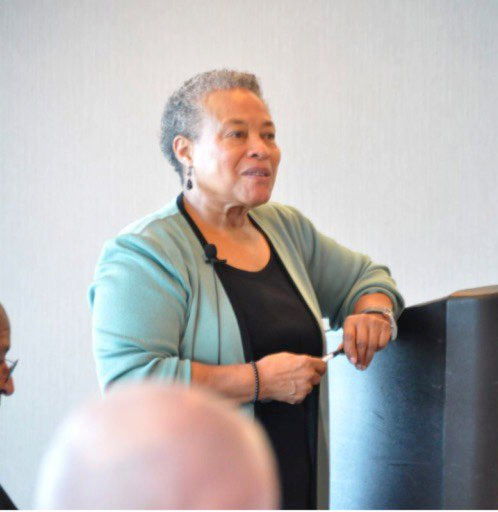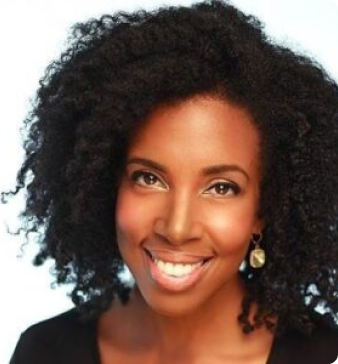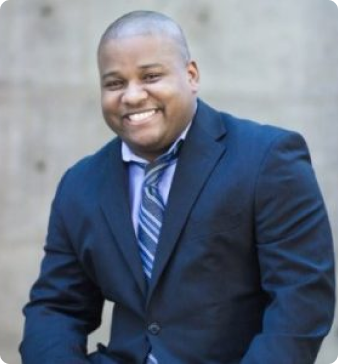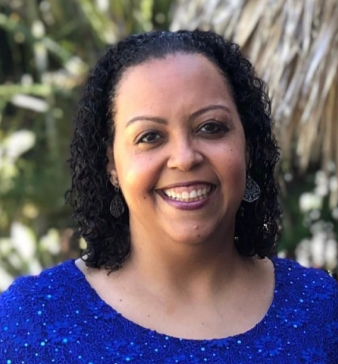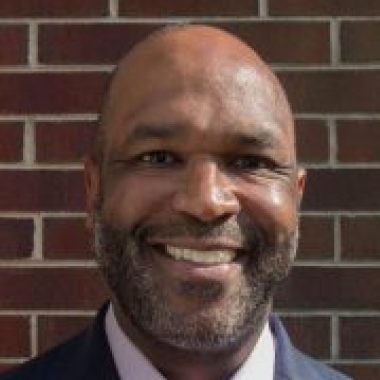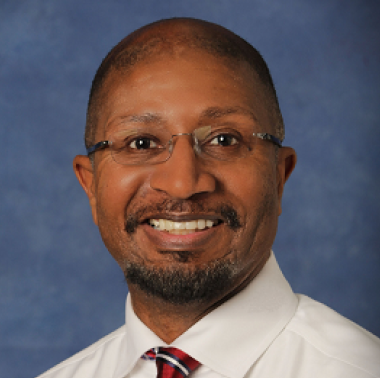AATA NEWSLETTERS
African American and Youth Homelessness
Learning Objectives:
- Understanding the Impact of Trauma on Youth Experiencing Homelessness
- Recognizing the Prevalence and Manifestations of PTSD among Marginalized Youth
- Analyzing the Intersectionality of Homelessness and Race
- Exploring the Barriers to Mental Health Support and Substance Abuse Treatment
- Examining Strategies for Trauma-Informed Care and Support Services
- Advocating for Policy and Systemic Changes to Address Youth Homelessness
Key Takeaways:
Intersectionality of Trauma and Homelessness
African American adolescents experiencing homelessness face compounded trauma due to intersecting factors of race, socioeconomic status, and systemic inequalities, leading to disproportionate representation within homeless populations and exacerbating mental health challenges.
Importance of Trauma-Informed Support
Recognizing and addressing trauma is crucial in providing effective support for homeless African American youth,
necessitating trauma-informed care approaches that consider their unique experiences and needs, including access to mental health services and substance abuse treatment.
Advocacy for Systemic Change
Advocacy efforts must prioritize systemic changes to address the root causes of youth homelessness, including combating systemic racism, addressing socioeconomic disparities, and implementing policies that provide equitable access to housing, education, and mental health resources for marginalized communities.
Upcoming Training:
Friday, April 19, 2024
Demystifying the Science Behind Psychiatric Medications
with Dr. Love and Shadi Doroudgar, PharmD
Resources:
- Department of Homelessness and Supportive Housing
- National Alliance to End Homelessness
- National Coalition for the Homeless
- HUD Homelessness Assistance
- Homelessness Research Institute
- Street Medicine Institute
- Homeless Shelter Directory
- National Law Center on Homelessness & Poverty
Self-Care: Perimenopause and Menopause among Black Women
Learning Objectives:
- Identified four self-care techniques that may bring relief for perimenopause symptoms.
- Determined two ways clinical staff can listen for and validate perimenopausal symptoms that Black women are experiencing.
- Determined three ways perimenopausal symptoms may impact trans and non-binary persons.
- Learned five signs of perimenopause.
- Learned two ways implicit bias can impact the likelihood that black women will be offered hormone replacement therapy.
- Learned four medications that are used to treat the symptoms of perimenopause.
- Learned four ways structural racism negatively affects the perimenopause experiences of Black women.
Key Takeaways:
Symptom Awareness and Self-Care
Dr. Glover shed light on the diverse array of symptoms experienced during perimenopause and menopause that can
bring mental health challenges. She emphasized the importance of holistic self-care. From hot flashes to mood swings, understanding these symptoms is crucial for effective self-management.
Addressing Healthcare Disparities
Dr. Glover highlighted systemic disparities in healthcare access, particularly for Black women, who are often underserved and less likely to receive treatment for symptoms like depression and insomnia. Culturally competent care and destigmatization
of menopause discussions within the Black community are essential for providing inclusive support.
Advocating for Inclusivity
The training urged healthcare providers to prioritize inclusivity and support for Black women navigating this transition. By fostering open and supportive dialogue, healthcare professionals can empower Black women to seek the care they need and deserve during perimenopause and menopause.
Upcoming Training:
Friday, February 23, 2024
Environmental Impacts on
African Americans Mental Health
with Delane Casiano, M.D. &
Karriem L. Salaam, M.D.
Resources:
- Better Sex through Mindfulness by Lori Brotto, Ph.D.
- Menopause Manifesto by Jen Gunter
- Podcasts: Come As You Are, Black Girls Guide To Menopause
- Social Media Influencers:
@sexologistshamyra @askgoody,
@menopausewhilstblack,
@blackgirlsguidetomenopause - NorthAmericanMenopause Society
- Omisade Burney Scott, Founder of Black Girls Guide to Surviving Menopause
- MenopauseWhilstBlack
Celebrating July As National Minority Mental Health Awareness Month
By: Roberta Sanders, BSN, LMSW
June 2, 2022
The African-American Technical Assistance Program believes that utilizing information developed by the Bebe Moore Campbell Organization to support July as National Minority Mental Health Awareness Month can greatly benefit our BIPOC communities. Formally recognized in June 2008, July is now recognized as Minority Mental Health Awareness Month. The information listed below is from a tool kit created to bring awareness to the unique struggles that underrepresented groups face concerning mental illness in the United States. This information was distributed by Mental Health America.
We will be providing examples focused around the 2021 theme, “Strength in Communities.” The information below will highlight alternative mental health support created by and for BIPOC, Queer, and Trans (QTBIPOC) communities of color. The tool kit explores three topic areas: community care, self-directed care, and culturally-based practices. Below, we will list just a few examples of each of these topics and recommendations for utilizing these resources in communities of color.
COMMUNITY CARE: An approach utilized by individuals to support one another and the broader community. Community care has existed in BIPOC and QTBIPOC communities for generations. This approach relies on the beliefs of communities where the individual’s well-being is intrinsically tied to the well-being of others in the larger community. One example of community care is the community healthcare workers.
These are frontline public health workers who are trusted members of the community and have an intimate understanding of the communities that they serve. Community health workers are recognized by various titles, including community health advisors, outreach workers, and faith-based groups. These are just a few groups that offer community support in mental health services.
CULTURALLY-BASED PRACTICES: Culturally rooted behaviors, values, and beliefs passed down through generations that function as informal support systems. These culturally based practices are part of a socially dynamic framework of assistance provided by and to individuals by their families, friends, and communities. One example of culturally-based practices include healing or prayer circles, which often include sharing personal experiences, chanting, and collective prayer. These culturally-based practices are often found in multi-generational households where individuals who live within a shared space may vary, but are usually made up of grandparents, adults and children, spouses of adult children, siblings, and offspring.
Read more…
May is Mental Health Awareness Month Does this include the African-American Community?
By: Roberta Sanders, BSN, LMSW
May 1, 2022
The idea of May being a Mental Health Month started in 1949 with a great deal of support and encouragement from a man named Clifford Beers. He had experienced a mental illness and was hospitalized and eventually experienced recovery. In his book “A Mind that Found Itself”, his journey to wellness is recorded. At that time, he found mental health services lacking and needed improvement. The idea of mental health month was to increase awareness and offer information to the general public regarding mental health issues.
Why do you ask, is this still needed today, since one can hardly turn on the television or read a newspaper where someone is not discussing the issue of mental health, from government officials and political figures to athletes and actors, everyone seems to be discussing the issue of mental health. Has this increased understanding of mental health issues reached the African-American communities? A quick review of current statistics shows that a great deal of mental health support is needed in communities of color.
The African American community is 13.4% of the US population, and of that population, over 16% reported having a mental illness in the past year. That is over 7 million people. This number will increase if you add to that information from the past two years during the recent Covid pandemic; there has been an increase in the severity of depression and anxiety in these communities. We have seen an alarming rise in the rate of suicide and suicide attempts among African-American young men. This increase needs to be addressed immediately.
Since the pandemic, more people have been talking about mental health. An increasing number of people are starting to see it for what it is: A critical component of your overall health and well-being, just like your physical health issues. However, several people in communities of color feel that mental health resources and conversations are still challenging. The lack of essential services for mental health conditions often seems out of their reach.
Read more…
Black History Month and the Achievements of African-Americans in the Area of Public and Behavioral Health
By: Roberta Sanders, BSN, LMSW
February 9, 2022
Pioneers and Unsung Heroes of Behavioral Health who work against all odds.
In Black history month we certainly want to celebrate the numerous African Americans who have worked to improve the behavioral health of all Americans and in order to do that we would like to celebrate the following Professionals some well-known and others who have worked for years to improve behavioral health for African American and other minority populations.
Kenneth Clark, M.D., the first black president of the American psychological Association. Dr. Clark worked on the study famously known as the “DOLL STUDY” that provided valuable evidence in favor of ending school segregation in the Supreme Court case “Brown vs. the Board of Education”. This study helped to prove that school segregation was psychologically harmful to black children.
James P Comer M.D., MPH, is a professor of Child Psychiatry at Yale University School of Medicine in the Child Study Center at New Haven Connecticut. He is known nationally and internationally for his creation of the Comer School Development program in 1968, within Yale university school of medicine, which focused on improving school restructuring, in order to improve overall student success. He is the co-founder and past president of the Black Psychiatrist of America and has received over 48 honorary degrees.
Jennifer Eberhardt, Ph.D., is a professor of psychology at Stanford University and is an expert on the consequence of the psychological association between race and crime. She has done extensive research on the topic of implicit bias, criminal justice and the education system. Her work has provided the evidence needed to educate law enforcement officers in the area of implicit bias training.
M. Joycelyn Elders, M.D., she was the first African American and second woman to be sworn in as the Surgeon General of the United States, during her tenure as Surgeon General, Dr. Elder advocated for universal health coverage, and comprehensive health education including sex education in the schools. While she was only Surgeon General for 15 months and was asked to resign. Following this, she continued to work to address minority health issues particularly when she was appointed by then Governor Clinton to the Arkansas Department of Health. While there, she focused on improving minority health which led to the establishment of the Office of Minority Health within the Arkansas Department of Health.
In more recent years we continue to have black pioneers in mental health.
Bebe Moore, an African American, author, journalist, teacher and mental health advocate who worked tirelessly to shed light on the mental health needs of the black community and other underrepresented groups. She founded a Chapter of the National Alliance on Mental Illness in Inglewood California, a predominantly black neighborhood, in order to create a space that was safe for black people to talk about mental health concerns.
Altha Stewart, M.D., is a key member of the national network to eliminate disparities in behavioral health and participated on their Steering Committee. She is a nationally recognized expert in the public sector on issues of mental health care for minority populations and the effects of trauma and violence on African American children. In May 2018, Dr. Stuart made history as she began her term as president of the American psychiatric Association making her the first African American to lead that organization.
Gayle Porter, PsyD, is the co-developer and trainer of the award-winning Prime-Time Sister Circle, with Marilyn Gaston M.D, former Assistant Surgeon General. This program is a theory- driven, empirically supported behavioral health intervention that is geared for middle-age African American women. This course-based intervention is an integrated model that focuses on emotional health and risk and promotes positive healthy decision-making and establishing social supports.
Howard Stevenson, PhD, a professor at the University of Pennsylvania and Director of the Racial Empowerment Collaborative, and the Forward Promise Program. Within this program, he is the developer and trainer of a program that addresses the impact of trauma and chronic stress on African American boys. The program has been shown to improve school attendance and reduce suspension rates and improve relationships among African American youth their peers and their teachers.
Read more…
Suicide: How this is affecting youth in the African-American community
By: Roberta Sanders, BSN, LMSW
January 7, 2020 2:17pm PST
We understand that September is Suicide Prevention month, however given some alarming statistics we decided to focus on youth suicide in the African-American community. According to the American Association of Suicidology, they believe that we should focus on suicide prevention every day. That is especially true regarding youth in the African-American community. The Substance Abuse and Mental Health Service organization known as SAMHSA and The Journal Community Health, states the suicide rate for African-American girls age 13 to 19 nearly doubled and the rate for African-American boys rose 60% from 2001 to 2017.
These statistics speak to a public health crisis. One thing that we need to be aware of and understand that suicide is preventable. According to DeQuincy Levine PhD, a community suicide prevention expert and the recipient of the SAMHSA VOICE AWARD, he believes that we learn from crisis and we can utilize the suicide crisis in the African-American community to develop programs and to move to meaningful action.
Read more…
African Americans in Holiday Stress and Depression
By: Roberta Sanders, BSN, LMSW
December 12, 2019 11:56pm PST
We all know the holidays can be a joyful time that offers a chance to reconnect with friends and family. However it can also be stressful. The holidays can be hectic and there never seems to be enough time to get things done. We have all heard this before.
However, did you know that a study published in 2018 by the Journal of Preventive Medicine shows that African-Americans and Latinos are significantly more likely to experience serious depression than Whites?
The study indicates that chronic stress among adulthood may be an important factor in depression and it may be worse among racial and ethnic minorities due to the stress experience from social and economic inequalities. The study was designed to gain a better understanding regarding the relationships between chronic stress and the chance for depression by race and ethnicity. Given some of the risk factors identified for the African-American population for stress and depression, it is important that holiday stress needs to be managed well by this population.
So now that we understand the higher risk for stress and depression for the African-American population, what are some of the tips you can utilize during the holidays?
Below are few Items you may want to consider:
Have realistic expectations and realistic goals for yourself. Don’t take on more than you can do comfortably, while maintaining your physical and behavioral health.
Make a list and prioritize important activities. This way you can make holiday tasks more manageable. Get organized!
Make a holiday budget and stick to it before you go gift and food shopping. Clearly understand the amount that you have to spend on each of these areas.
Read more…



